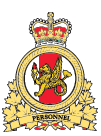Book Reviews

Appel: A Canadian in the French Foreign Legion
by Joel Adam Struthers
Waterloo, ON: Wilfrid Laurier Press, 2019
260 pages, 30 illus. $24.99
ISBN 978-1-77112-105-7 (softcover)
ISBN 978-1-77112-106-4 (EPUB)
ISBN 978-1-77112-390-7 (PDF)
For more information on accessing this file, please visit our help page.
Reviewed by Michael Boire
For readers wanting to learn about the reality of soldiering in the contemporary French Foreign Legion, unencumbered by the myth and conceit which characterize so many of the past descriptions of ‘la Légion,’ this is the book for you. In this cheerful memoir and thoughtful autobiography, Joel Struthers takes us on a heartfelt journey through his six years in ‘la Légion.’ He was indeed blessed to have served most of his time in the Legion’s elite airborne component, the incomparable 2čme Régiment étranger de parachutistes, (‘le REP’), then and now, the vanguard of the French Special Forces.
As a young Canadian boy, fresh out of high school, with a self-described ‘chip on his shoulder,’ more aggressively physically fit than poised and mature, the author felt out of place in what he considered his dull and ordinary milieu. Coming from a well-travelled RCAF family with long and honoured service to Canada beginning a century before during the Boer War, Struthers’ inclination was to turn to a military career as a way to set himself straight and gain focus on his own way ahead. The profession of arms that had brought much credit and pride to his grandfather and father in the past would now be the vehicle to bring him success, fulfillment, and a welcome end to self-doubt.
Struthers began his pursuit of maturity by joining the Royal Westminster Regiment, one of the cornerstones of the British Columbia militia. Comforted by his newfound life in uniform and fascinated by the challenges of training in his regiment’s armoury and on the wide-open spaces of Wainwright, young Joel found a measure of happiness. Although busy and focused, he remained, nonetheless, unfulfilled. There was something missing. As Joel continued his journey to adulthood in the Canadian militia, he heard the clarion call of the Legion’s aggressive marketing. Indeed, for a young man seeking self-realization in the adventure of battle in distant lands, the lure of Legion proved irresistible to young Struthers. He was quick to learn that, “While the Legion is part of the French military, it retains its own history, traditions, and discipline. Within the French military, it is understood that a Légionnaire differs from a regular soldier in that the expectations and discipline are higher.”(p.35) This was to be the author’s new life.
This book gives readers the lowdown on the Legion. Although it is a cascade of detail with respect to this special and unique form of military life, the book offers all the technical detail of a Clancy novel, but one written with a sensitive touch. Struthers takes us through his entire six-year adventure in 24 fascinating chapters, each one brimming with minutiae of his basic and specialized training, formal and informal qualifications, multiple deployments to Africa with its brushes with death, and his final acceptance into the Legion’s most select brotherhood: le Groupe des commandos parachutistes, the REP’s pathfinders.
The author takes pains to set the record straight about many of the Legion’s current practices, which have often been shrouded in myth. Touted as a refuge for fugitives pursued by the law in their home countries, today’s Legion is not the sanctuary for the lawless, as portrayed in ‘B movies’ of yesteryear. The Legion’s security service, nicknamed ‘le Gestapo,’ subjects potential recruits to thorough vetting. Less than the whole truth can result in immediate expulsion. Legionnaires encourage each other to tell the truth when asked about their origins, as well as their reasons for applying. This avoids wasting time and effort on recruits who may be untrainable, may not respond to discipline, or may eventually cause embarrassment to the Legion. Moreover, the myth that all Legionnaires must receive an assumed identity when sworn-in is an exaggeration. Recruits from countries whose laws forbid its citizens from joining foreign militaries must assume a false identity to protect themselves. Struthers kept his real name because he was a citizen of Canada, whose laws remain silent on this issue.
However, Struthers makes it very clear that the Legion’s well-worn reputation for demanding – and brutal – training remains accurate. Physical punishment administered by training staff was the norm. The author himself was the object of such treatment on more than one occasion. But he admits that there was a spirit of fairness in the Legion: privates and NCOs could mutually agree to settle scores ‘out back’ without the risk of disciplinary action, for the winner or the loser.
The author sums up his experience of basic training in a few words: fitness, French, and hunger. Whereas extreme physical training was constant, the rations did not keep up with the effort expended. Recruits remained hungry during the four long months of training up and down the mountains of southern France. Also, with 150 different nationalities in its ranks, it is not surprising that the Legion’s most significant training challenge remains teaching its soldiers French. Struthers’ recruit class spent most of its classroom time mastering the basics of their new language. Nonetheless, for all that is legendary about the Legion, “It’s a fact that in a bid to set itself apart from the rest, the Legion maintains iron discipline and places heavy restrictions on personal freedoms. Although this works as a short-term solution, it results in a high turnover.” (p.168)
However, the author admits that the Legion’s insistence upon singing on the march, at table, in the classroom, in short, everywhere, was just not for him. That said, as he admits: “In hindsight, I now appreciate that every military unit maintains tradition since it creates a sense of identity, and in the case of the Legion, recalls the operations and wars fought. Songs are a map book of military history and with an institution as steeped in tradition as the Legion singing is an essential part. But I still couldn’t get into it.” (p.43)
Perhaps the most thought-provoking component of Struthers’ descriptions of his life in the Legion is his justification of the Legionnaire’s Code of Honour. This solemn vow taken as a group at graduation from basic training expresses the place of virtue in the Legion’s creed. Such an emphasis is both unique and compelling. It reads in part:
“Légionnaire, you are a volunteer serving France… Every légionnaire is your brother in arms… Respectful of traditions, loyal to your commanders, discipline and camaraderie are your force, courage and loyalty your virtues… The mission is sacred; you will execute to the end at all costs… In combat, you act without emotion or hatred, you respect the defeated enemy and you never abandon your dead, your wounded, or your weapons.” (pp.47-48)
In conclusion, Joel Struthers has given us a touching and highly personal rendition of a soldier’s life in today’s French Foreign Legion. He uses the French term ‘Appel’ (the call), starting with the cover, to underline the notion that the Legion is indeed a calling, and as such, is meant for just a few.
Michael Boire, a retired Canadian Army officer, served two tours as an exchange officer in the French Army. He is currently an instructor and counsellor at the Royal Military College in Kingston.







